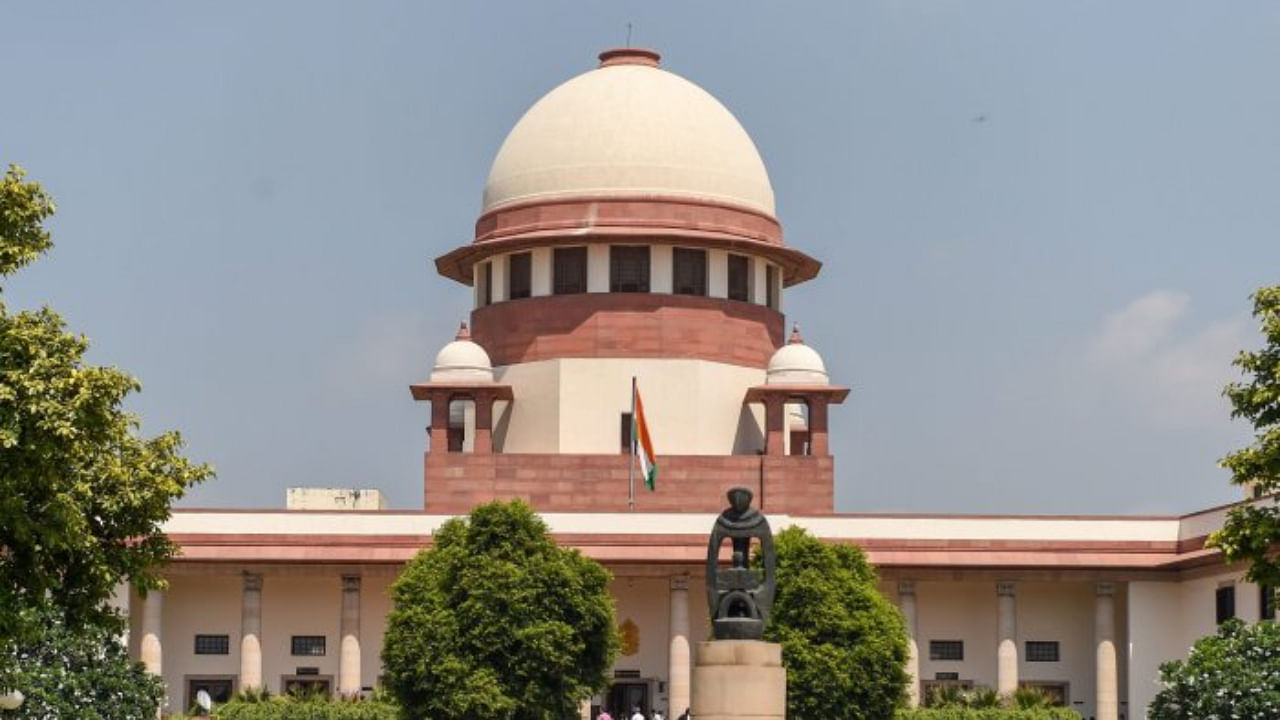
The Supreme Court of India.
Credit: PTI File Photo
Brushing aside the Centre's vehement opposition, the Supreme Court on Wednesday decided to go ahead with the hearing of pleas seeking reconsideration of the July 2022 judgment of the apex court upholding the validity of the provisions of the Prevention of Money Laundering Act (PMLA).
Solicitor General Tushar Mehta, for the Centre, submitted before a three-judge bench led by Justice Sanjay Kishan Kaul that the 2022 judgment was rendered after a lot of deliberations and all the arguments made in current batch petitions were advanced then.
He questioned if this bench of three-judges can sit in appeal over another coordinate bench.
Mehta asked if a person can come tomorrow with a petition that he does not agree with the five-judge bench judgment in the same-sex marriage case and seek reference or hearing.
Mehta said PMLA is not a standalone offence and unlike other laws, PMLA is prepared by the legislature in conformity with the directions issued by the Financial Action Task Force (FATF).
He said that every member country has prepared their money laundering and terror laws. Mehta asked the court to wait for the mutual evaluation by FATF to get over.
The bench, also comprising Justices Sanjiv Khanna and Bela M Trivedi, said the court does not prima facie agree with the contention and will deal with the matter.
Mehta said this bench cannot revisit it in these proceedings, otherwise there will be no end to litigation.
The bench told Mehta that prima facie his view is that if it is worth, the three-judge bench can deal with it and there cannot be a bar, and asked if it is written in stone a bench cannot look into another bench judgement.
The bench said that the court can’t say that it can never revisit the decision, and “review order says at least two aspects to be considered…..somebody has filed it and we can consider, and not preclude somebody”.
Mehta said it is not an academic exercise and we have to be alert and alarmed.
The bench said the court is alert and it won’t be alarmed by any party. However, Mehta insisted with his objection on the petitions. The bench, however, asked Sibal to continue his arguments.
Sibal said the court had said PMLA is not a penal statute and that is his first problem.
Sibal submitted that one can be convicted for money laundering and sentenced, but the court says it is a regulatory statute.
Sibal said when a person is summoned under PMLA, he would not know in what capacity he is being summoned, whether as an accused or witness. Justice Khanna said the justification in the judgment is that it is same as for Customs Act, Excise Act, Income Tax Act.
Sibal replied, but they are not penal statutes and the next point is that there is no ECIR (Enforcement Case Information Report).
Sibal said that the person would not know the allegations against him and how would he get bail?
The bench asked Sibal, if all these issues were wrongly considered in the judgment. Responding positively, Sibal said the twin condition in bail, and without information how would one defend himself. Sibal stressed that his case is that the statute is not in conformity with the Constitution.
The court posted the pleas for a day long hearing on November 22.
In November 2017, a bench of Justice Kaul and Justice (since retired) R F Nariman had held Section 45(1) of PMLA unconstitutional insofar as it imposes two further conditions for grant of bail to an accused saying this violates Articles 14 and 21 of the Constitution.
This was overruled by a three-judge bench in July 27, 2022, judgment in the case Vijay Madanlal Choudhary vs Union of India. The court had then that “the principle of innocence of the accused/offender is regarded as a human right” but “that presumption can be interdicted by a law made by the Parliament/Legislature”.
The ruling held as valid the twin conditions for bail laid down in Section 45 of the Act. According to the provision when the public prosecutor opposes the bail plea of an accused, the court can grant relief only if it is satisfied that there are reasonable grounds to believe that the accused is not guilty of such an offence and that he is not likely to commit any offence if released on bail.
